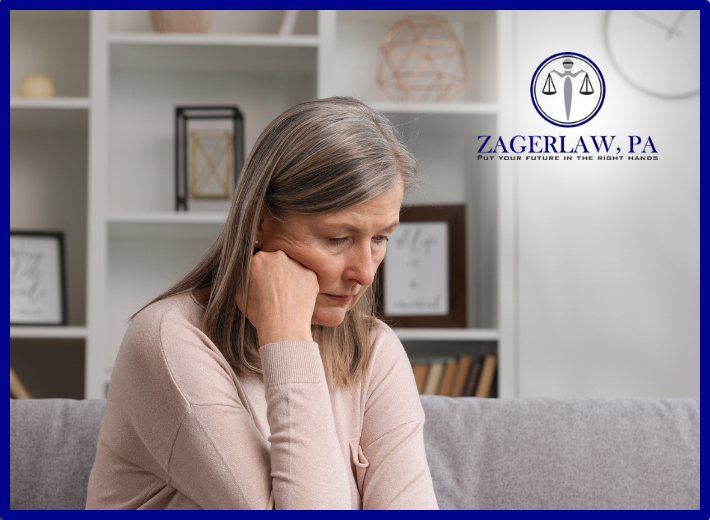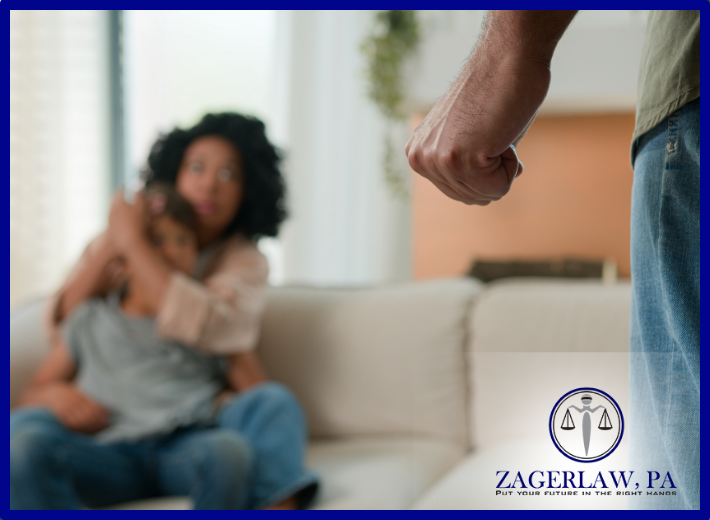Domestic violence is a crime with far-reaching consequences. While victims often seek justice through the legal system, there may be instances where they choose to drop charges. This decision is complex and influenced by various factors, including the victim’s safety, the nature of the abuse, and the legal implications. Understanding the process of dropping domestic violence charges is crucial to making informed decisions and navigating the complexities of the legal system. If you have questions about domestic violence, Joseph Zager is who you want to answer your questions — he is tenacious, fighting for you, your family, and your interests every step of the way.
Dropping charges for any crime is not often up to the victim or the person that brings the matter to the attention of the police. If the issue has a criminal prosecuting lawyer, the matter may progress to the trial stage without any opinion or statement from the victim. However, if the victim asks the prosecuting lawyer to drop the matter, it is then up to that legal team to determine if sufficient evidence exists to pursue the matter further or if the concern is not worth it. Dropping the charges then becomes possible. However, this may rely either on the testimony of the victim or the evidence surrounding the case itself.
The Testimony of the Victim
Some cases have little evidence to pursue the claim against the defendant. When this is the reality, the prosecution may need to drop the charges if the victim refuses to either testify or help the prosecution’s case. If the victim decides to testify on behalf of the defending party, the case may have little to no standing. Then, the charges may drop with insufficient proof in the matter. These situations rely upon the affected person’s testimony and participation. When he or she does not want to pursue criminal action against the perpetrator, he or she may work diligently to drop the charges.
Supporting the Defense
If a domestic violence case proceeds through the prosecution, the victim may need to work with the defense in an attempt for the charges to drop. This may prove to the prosecuting lawyer that the victim of the violent behavior will not support the criminal charges or a conviction. By supporting the legal defense team, it is possible for the case to lose strength or credibility. However, this is not always sufficient action to ensure the prosecution drops the charges. Then, it is a matter of refuting the evidence of the case. Testifying with the defense, the victim may cause problems for the opposing legal counsel.

Refuting the Evidence
Domestic violence cases may start with witnesses in the area contacting local law enforcement. This is often due to violent outbursts, emotional arguments or loud fighting between the two parties. The supposed victim may need to help the defense refute the evidence or witness statements. Testifying on behalf of the defendant, the victim may prove that the situation only involved strong words or broken furniture. If the event involved violence, the victim could have instigated the matter and explain this to the courtroom. Working with the lawyer on the defense team may provide a way to refute other evidence such as bruising or broken bones and hospital or emergency room visits.
By discrediting the statements witnesses supply in a domestic violence case, it is possible that these individuals may have little use or help for the prosecution. Some may give statements of false information or provide details to seek some form of fame. Others may speak up out of concern but not have any real connection to the situation. False details may enter the court when the witnesses are neighbors that have no true knowledge of what transpired within the home. To seek a dropping of the domestic violence charges, the victim may need to work hard with the defense to supply the necessary counter-argument against neighborhood witnesses.

The Case and the Lawyer
While the victim may not have the power to drop the charges for domestic violence once the matter progresses to the criminal courts, he or she may seek to make a deal with the prosecution or the defending lawyer. By explaining the matter and how it should remain a private affair, the individual may help convince the legal parties to negotiate a plea bargain. Then, the case may end without the need for judgment.
When facing domestic violence charges, the accused needs a criminal defense lawyer to combat the possible damaging case. He or she will need a legal representative to protect his or her rights. If a plea bargain is possible, he or she will need the lawyer to negotiate the best possible deal.

Facing domestic violence charges? Don’t let your future be defined by a single accusation. Our experienced legal defense lawyers can help you understand your rights and fight for a favorable outcome. Contact us today at 954-888-8170, or email [email protected]. We can also be found on Instagram here.
Reference:[https://www.hg.org/legal-articles/can-a-domestic-violence-victim-get-the-charges-dropped-47246]

